Be Smart! Be Strong! Say NO when things feel wrong!

The HEP Human Trafficking Education Program for Ghana
The Schools Program
The Hope Education Project Schools Program is a five-module anti-trafficking education program designed for junior high school students in Tamale, Northern Ghana. This low-cost, high-impact initiative equips learners aged 11-15 with the knowledge, language, and confidence to recognise and resist human trafficking.
Each module is delivered in English and Dagbani by trained facilitators, in close partnership with Teacher Patrons and Head Teachers. Through rights education, storytelling, games, role-play, and participatory theatre, students engage with key concepts such as children’s rights and responsibilities, personal safety, digital grooming, online safety, peer pressure, and community resilience.
What follows is an overview of the HEP human trafficking education program’s content, delivered as a pilot project in Tamale, Northern Region, Ghana in February and March 2025.
Module 1: Knowing Our Rights and Recognising Trafficking
This opening module introduces students to their rights as children under Ghanaian law and international conventions. It explores the difference between labour and sex trafficking and uses storytelling in the local context to make the concepts relatable and age-appropriate. Sessions are delivered in a mix of Dagbani and English and include open discussions about vulnerability, personal boundaries and safety planning. The module introduces the concept that trafficking often begins with someone they know and trust.
Read more about the Pilot Project delivery of Module 1
Module 2: Traffickers, Victims, and Staying Safe
This module explores how trafficking happens, who is most at risk (risk factors) and how traffickers manipulate and groom their victims. Students learn to recognise risk factors and build safety strategies, including identifying Three Trusted Adults. Interactive games like the Traffic Light Game and The Trafficking Web support engagement and help students apply what they’ve learned through movement and peer collaboration. The module also highlights how young boys and men might use similar grooming tactics among their peers to coerce others into transactional or exploitative sexual relationships.
Read more about the Pilot Project delivery of Module 2
Module 3: Online Safety and Digital Trafficking
Students explore how traffickers use digital platforms, including social media, messaging apps, and fake profiles, to make contact with young people. Through role-play, scenario discussions and debate, students learn how to stay safe online, respond to inappropriate messages and how to report digital grooming. The session reinforces the importance of sharing concerns with trusted adults and navigating the internet with awareness. The module also challenges the students to consider their motivation for accepting friend requests or messages from strangers.
Read more about the Pilot Project delivery of Module 3
Module 4: Rehearsing Resistance Through Theatre

This module introduces participatory theatre as a tool for learning. Students work in small groups to develop and rehearse three short plays based on common trafficking scenarios. They are provided with a basic script and encouraged to expand the dialogue around the main learning points. Facilitators guide the process but allow students to be creative, encouraging them to adapt the plays to reflect their own experiences and community realities. The activity builds empathy, confidence, and communication skills while helping students practise assertive decision-making. It also engages learners who thrive through action, voice, and collaboration.
Read more about the Pilot Project delivery of Module 4
Module 5: Performance and Peer Advocacy
The program culminates with students performing their plays in front of their peers in school. These student-led performances consolidate the learning journey and give students the opportunity to model resistance and safety strategies. Performances spark discussion, create visibility, and reinforce the role of youth as advocates. Performances spark discussion, create visibility, and reinforce the role of youth as advocates. Each session ends with students leading the school in the HEP program slogan: “Be Smart! Be Strong! Say No When Things Feel Wrong!” Students are also invited to perform their plays as part of the out-of-school girls’ community sessions, where the audience may include mothers, sisters, and aunts — extending the program’s reach and relevance beyond the classroom.
Read more about the Pilot Project delivery of Module 5
Taking the Learning Home: The Student Handouts

At the end of the program, each student receives a printed handout booklet featuring illustrated summaries, crosswords, and culturally relevant cartoons. Designed to reflect the realities of Tamale, the handouts reinforce learning at home and spark conversation beyond the classroom. They are shared widely among siblings, friends, and compound households. Students consistently express pride and excitement in receiving the handouts and, in post-course focus groups, often say they believe the materials were created locally – a testament to their authenticity and impact.
Monitoring and Evaluation: Measuring Impact
Each module of the HEP human trafficking program for Ghana is accompanied by structured monitoring and evaluation. Pre- and post-tests measure knowledge gains, while classroom observations and focus groups provide insight into student engagement, attitude shifts, and community dialogue. This approach helps track student progress and refine delivery, ensuring the program is both effective and responsive to local realities.





